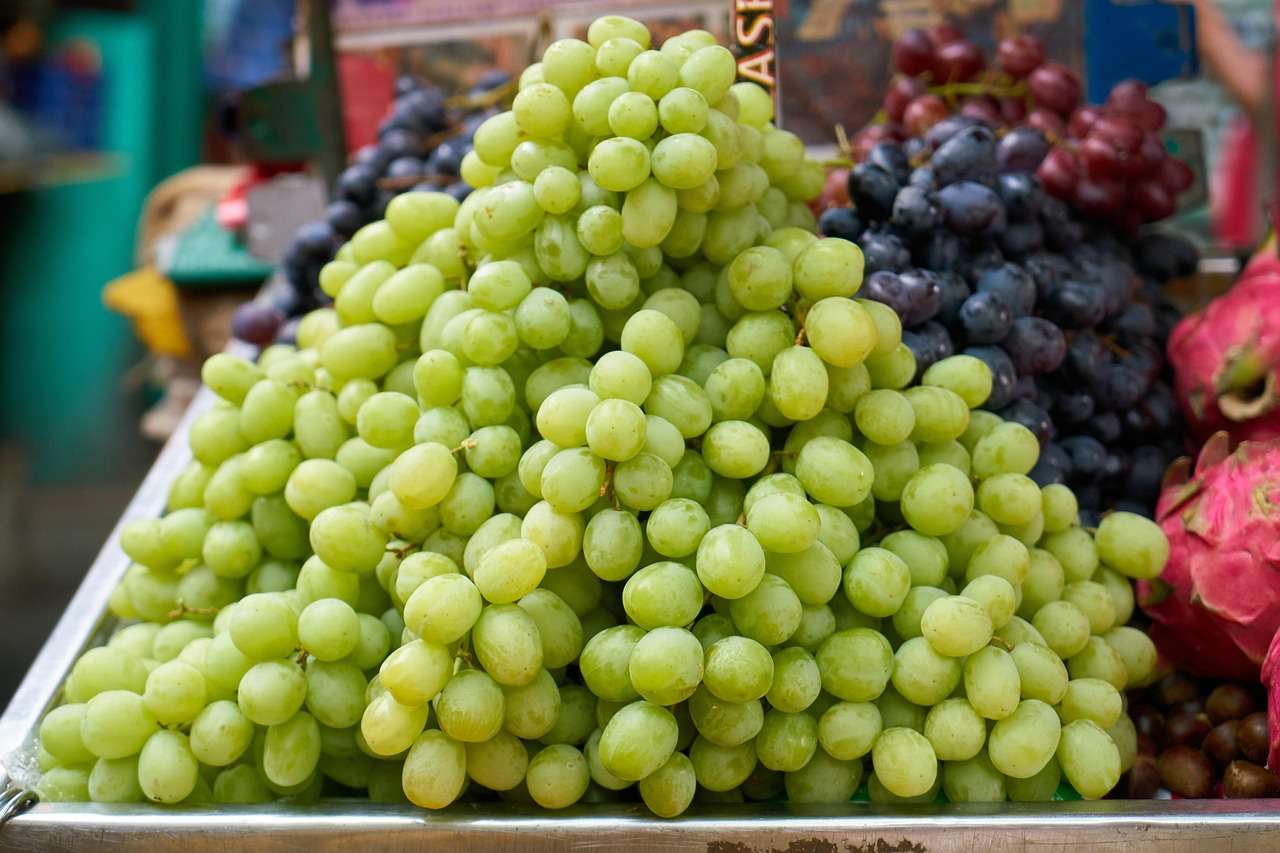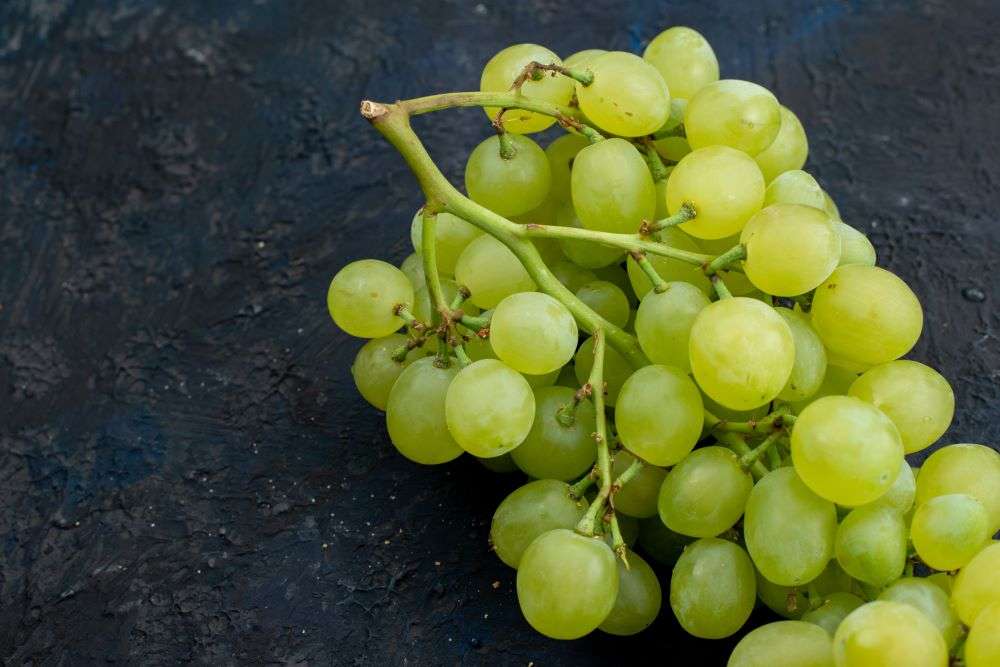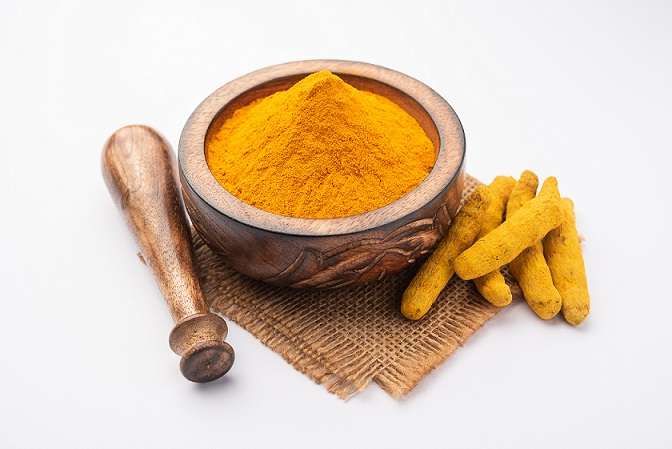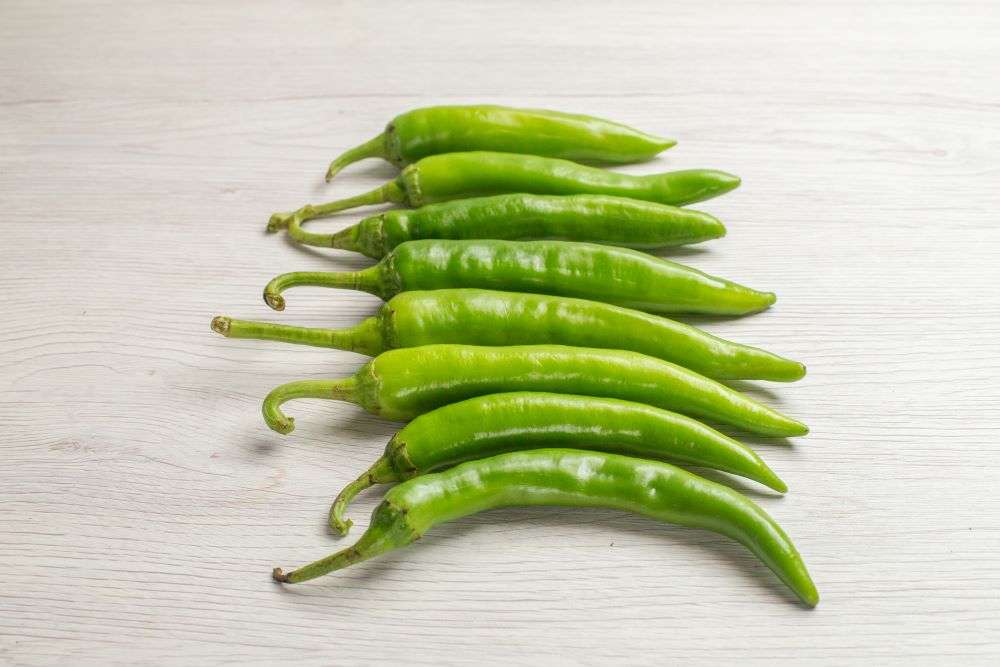India, a land of diverse climates and fertile soils, has emerged as a significant player in the global grape export market. With its high-quality produce and meticulous processes, Indian grapes have found their way to tables across Europe, the Middle East, and beyond. This blog delves into the fascinating journey of grapes from Indian vineyards to international markets, highlighting the grape varieties, processing steps, opportunities in the industry, the grape season, and a recent success story in grape exports.
The Grape Season in India
The grape season in India typically spans from January to May, with the peak harvest occurring between February and April. During this period, regions like Nashik in Maharashtra, often referred to as the “Grape Capital of India,” come alive with activity. Other major grape-producing states include Karnataka, Andhra Pradesh, and Tamil Nadu.
Varieties of Grapes Grown in India

India’s grape industry is known for its diverse range of high-quality varieties, each with unique attributes suited for different purposes:
- Thompson Seedless: The most widely cultivated and exported variety, loved for its sweet taste and seedless nature.
- Flame Seedless: Bright red grapes with a crisp texture, popular in international markets.
- Sharad Seedless: A key export variety with great potential due to its excellent shelf life and taste.
- Sonaka: A green seedless variety known for its elongated shape and sweetness.
- Red Globe: A seeded variety with large, red fruits primarily exported to niche markets.
The versatility of Indian grape varieties provides ample opportunities to cater to a wide range of consumer preferences globally.
Export Process and Quality Control

Exporting grapes from India involves a meticulous process to ensure that the produce meets international standards. Here is a step-by-step overview of the export process:
- Sourcing and Harvesting: Grapes are sourced from renowned grape-producing states in India, with Nashik being a prime location. Farmers use advanced farming techniques to cultivate high-quality grapes.
- Sorting and Grading: Once harvested, grapes are transported to packhouses where they undergo sorting and grading. Grapes are graded based on size, color, sweetness, and the absence of any residues. Only the best quality grapes are selected for export.
- Pre-Cooling: The sorted grapes are then subjected to pre-cooling to remove field heat and extend their shelf life. Pre-cooling is done using forced air cooling or hydrocooling methods to rapidly bring down the temperature of the grapes.
- Washing and Treatment: After pre-cooling, grapes are washed to remove any surface dust, pesticides, or residues. They may also undergo treatment with fungicides or preservatives to prevent spoilage during transit.
- Packaging: Grapes are carefully packed in ventilated cartons or boxes to ensure they remain fresh during transportation. Proper packaging is crucial to maintaining the quality of the grapes. The cartons are usually lined with cushioning material to prevent bruising. Each carton is labeled with important information such as the variety of grapes, weight, and country of origin.
- Quality Control and Certification: Before being shipped, the packed grapes undergo a final round of quality control checks. Exporters obtain necessary certifications, including the Phytosanitary Certificate, which ensures that the produce is free from pests and diseases.
- Customs Clearance: Exporters submit all required documents, such as the invoice, packing list, bill of lading, and certificates of origin and quality, to the customs authorities for clearance.
- Container Loading: The packed and certified grapes are then loaded into refrigerated containers, also known as reefers, to maintain the required temperature during transit. The containers are carefully sealed and transported to the port for shipping.
Opportunities in the Grape Export Industry
India’s grape export industry is brimming with potential:
- Growing global demand for fresh fruits.
- Emerging markets in North America and Southeast Asia.
- Value-added products like raisins and wine.
- Government support through export promotion schemes.
- Sustainability trends and eco-friendly practices.

A Recent News Highlight
Mahindra Agri Solutions Limited (MASL), a subsidiary of Mahindra & Mahindra, is expanding its global footprint by exploring new markets for Indian table grapes. Already exporting to Europe, North America, China, and Southeast Asia, MASL plans to venture into newer regions while also diversifying into other horticultural crops. The company collaborates with over 500 farmers in Maharashtra, equipping them with advanced farming techniques to enhance exportable yields. MASL’s state-of-the-art packhouse in Nashik ensures strict quality control and traceability, strengthening India’s reputation as a reliable supplier of premium horticultural produce.
– Business Standard
The Road Ahead
The Indian grape industry stands at an exciting juncture. To achieve sustained growth, a focus on the following areas will be crucial:
- Innovation in farming techniques.
- Digital transformation for supply chain efficiency.
- Market expansion in untapped regions.
- Adoption of sustainable farming practices.
- Strengthening India’s global brand presence.
Indian grapes symbolize dedication, innovation, and excellence. With diverse varieties and abundant opportunities, the industry is poised to flourish further. As you enjoy a sweet bunch of Thompson Seedless or a crisp Flame Seedless, you’re savoring a slice of India’s agricultural brilliance.
Indo Foods Export is taking its first steps in the global export arena, making strides in bringing India’s premium produce, especially high-quality grapes, to international markets. Despite being an entry-level exporter, the company is dedicated to excellence, sustainability, and innovative export strategies. This emerging company is helping to position India as a significant exporter. By supporting farmers and enhancing quality standards, Indo Foods Export is contributing to a promising future for Indian agriculture while captivating consumers worldwide.
With the support of budding companies like Indo Foods Export, the Indian grape industry is well-prepared for a sustainable and prosperous future on the international stage.





